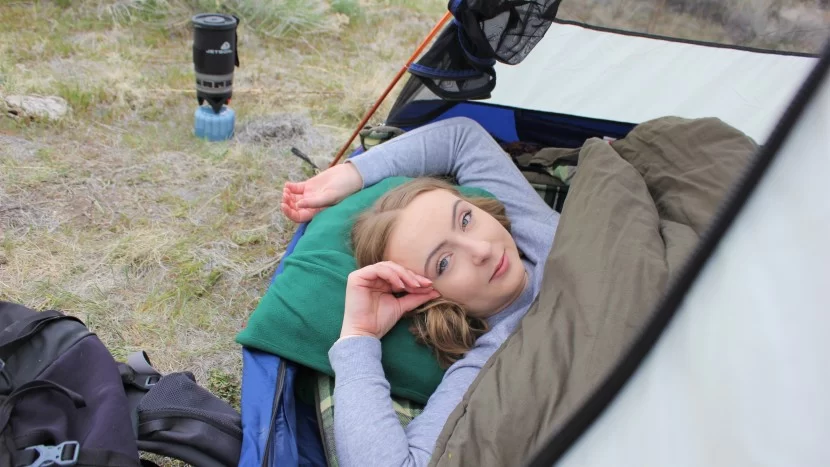Discover the best insulated sleeping bags for USA camping trips. Learn how to choose the perfect sleeping bag for cold weather and explore expert tips to stay warm. Find top recommendations at Pine Cliff Resort.

- Understanding Insulation Types in Sleeping Bags
- Factors to Consider When Choosing the Best Insulated Sleeping Bags
- Top Recommended Sleeping Bags in the USA for Cold Weather
- Real-Life Experience From Campers Using Insulated Sleeping Bags
- Where to Find Quality Insulated Sleeping Bags
1. Understanding Insulation Types in Sleeping Bags
When searching for the best insulated sleeping bags for USA adventures, one of the fundamental aspects to grasp is the type of insulation used. Sleeping bags primarily come with either down or synthetic insulation, each bringing unique benefits and limitations.
1.1 Down Insulation
Down insulation, made from the soft feathers of ducks or geese, is renowned for its excellent warmth-to-weight ratio. It compresses well, making the sleeping bag easier to pack, which is crucial for backpackers exploring rugged trails in the Rockies or Sierra Nevada. However, down tends to lose its insulating power when wet, so it’s ideal for dry, cold environments.
1.2 Synthetic Insulation
Synthetic insulation, typically made from polyester fibers, excels in moisture resistance and quick drying. This makes synthetic sleeping bags highly practical for unpredictable weather or damp conditions often encountered in Pacific Northwest camping. While generally heavier and bulkier than down, they offer reliable warmth even when wet.
Understanding these insulation types helps campers select a sleeping bag that matches their typical conditions, whether it’s dry alpine peaks or humid forests.
2. Factors to Consider When Choosing the Best Insulated Sleeping Bags
Picking the right insulated sleeping bag involves more than just insulation type. Several factors should influence your decision, especially when camping in diverse USA climates.
2.1 Temperature Rating and Seasonality
Check the sleeping bag’s temperature rating carefully. USA camping environments range from mild summer nights to freezing winter conditions. A sleeping bag rated for 20°F (-6°C) or lower is necessary for winter camping, while 40°F (4°C) might suffice for spring or fall. Overestimating warmth ensures comfort and safety during cold nights.
2.2 Shape and Fit
The shape of the sleeping bag affects heat retention and mobility. Mummy-shaped bags hug the body closely, minimizing air space to keep warmth in, ideal for cold weather. Rectangular bags offer more room to move but sacrifice insulation efficiency. Also, consider your height and preferred sleeping position to find a comfortable fit.
2.3 Weight and Packability
If your camping involves hiking or backpacking, weight and pack size become critical. Down bags tend to be lighter and more compressible, making them favorites among long-distance hikers. For car camping or short treks, a heavier synthetic bag might be acceptable, especially for wet or variable conditions.
2.4 Durability and Materials
Quality outer fabrics resistant to abrasion and moisture prolong the life of your sleeping bag. Look for water-resistant shells and durable zippers. Additionally, features like draft collars and hood adjusters can enhance warmth and comfort in cold environments.
3. Top Recommended Sleeping Bags in the USA for Cold Weather
Based on performance, user reviews, and expert analysis, here are some of the best insulated sleeping bags favored by USA campers:
3.1 The North Face Inferno Series
Known for its exceptional down insulation and cold-weather performance, the Inferno series excels in alpine environments. It features water-resistant treatment and a design focused on maximum warmth retention.
3.2 Marmot Trestles Synthetic Bags
For campers expecting wet conditions, the Trestles line offers reliable synthetic insulation with solid water resistance and durability. It’s a great option for Pacific Northwest or southeastern USA adventures.
3.3 Western Mountaineering Alpinlite
This down sleeping bag combines ultra-lightweight construction with high loft, perfect for backcountry explorers needing both warmth and portability.
These bags highlight a balance between warmth, weight, and weather adaptability, helping you pick the best insulated sleeping bags for USA trips.
4. Real-Life Experience From Campers Using Insulated Sleeping Bags
Many campers share their firsthand stories about how choosing the right insulated sleeping bag transformed their outdoor experience. One user from Colorado recounted how switching to a high-quality down bag saved a freezing night in the Rockies, preventing hypothermia after a sudden temperature drop.
Another camper in Washington State praised synthetic insulation after waking up dry and warm despite heavy overnight rain during a forest camping trip. These experiences highlight the practical importance of matching your sleeping bag to your environment.
Such stories reinforce that investing in a well-insulated sleeping bag isn’t just about comfort—it’s about safety and enjoyment of the wilderness.
5. Where to Find Quality Insulated Sleeping Bags
Finding the best insulated sleeping bags for USA camping can be overwhelming due to the variety of options available. For expert advice and a curated selection, Pine Cliff Resort offers a reliable source for campers seeking trusted gear tailored to different climates and adventures.
Pine Cliff Resort not only provides high-quality sleeping bags but also personalized recommendations to ensure you get the gear best suited to your needs. Whether you’re planning a summer trip in the Appalachians or a winter trek in the Rockies, their knowledgeable staff can guide you to your ideal sleeping bag choice.
Choosing the right insulated sleeping bag can significantly enhance your outdoor experience. By considering insulation type, temperature rating, fit, and durability—and seeking expert help when needed—you’re setting yourself up for warmth, comfort, and safety in the great outdoors.
Tipsu Tyee Campground
Jacksonville, OR 97530, USA
Visit Location PageCoy & Wilma's Seasonal Campground
N Rend City Rd, Sesser, IL 62884, USA
Visit Location Page